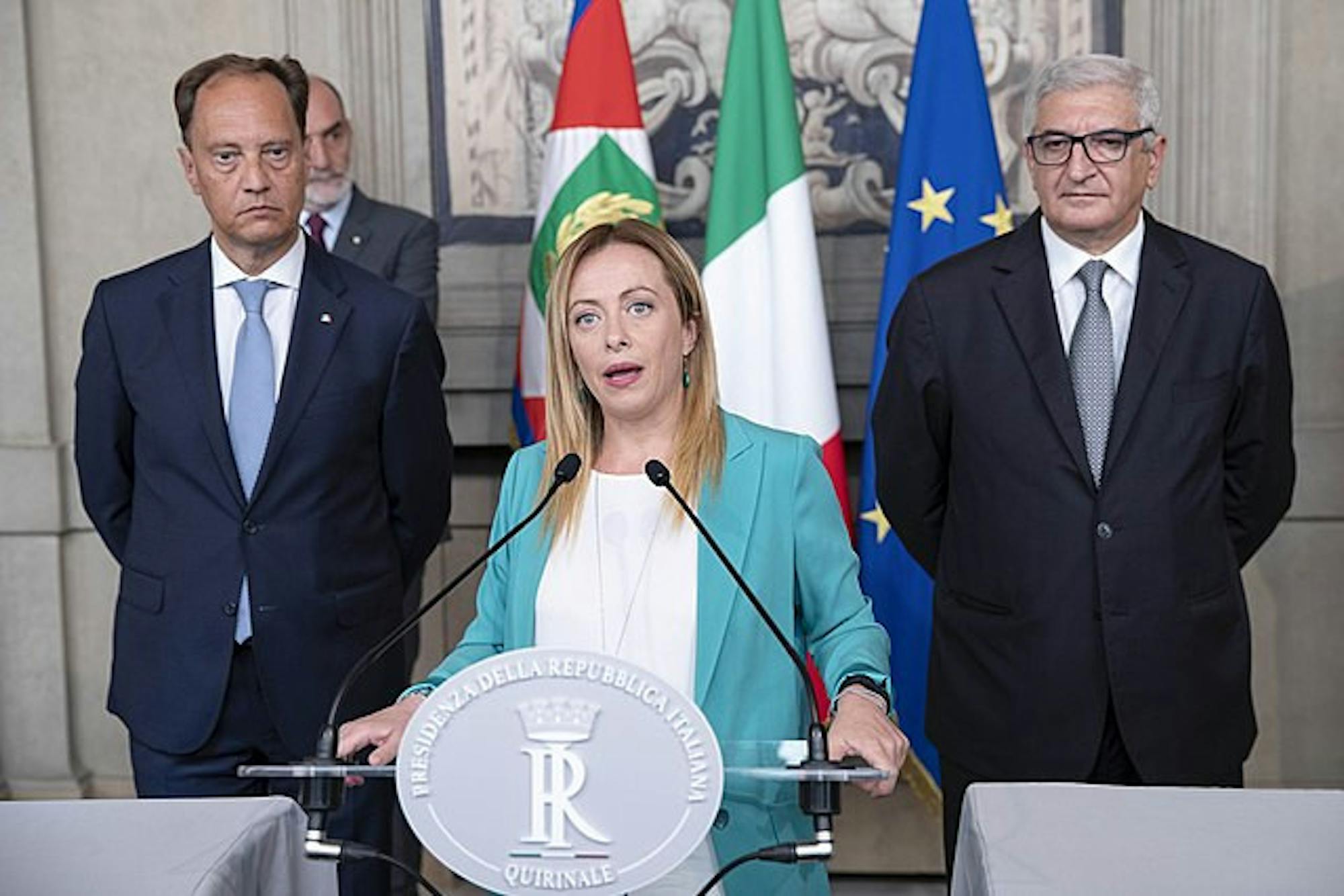On Sunday, Sept. 25, Italy joined the growing list of democracies led by right-wing governments when it voted the Brothers of Italy leader Giorgia Meloni into office. The 45-year-old politician and journalist who now serves as prime minister has gone viral for a speech in Rome where she proclaimed she is a “woman, mother, Italian and Christian.” This slogan holds a mirror to the veiling of xenophobia under the guise of protection of family values by directly emphasizing Meloni’s nationality, religion and duty as a mother stemming from her sex. The mere fact of Meloni’s gender should not be a reason to celebrate her election. Italy joins Iceland, Denmark and New Zealand as a developed country with a female leader; however, unlike the latter three countries, Italy is headed in a direction that is clearly not feminist. Meloni has stated that she does not intend to abolish Italy’s abortion law, but the law provides inadequate support and resources for women wanting an abolition, which results in limited abortion access in Italy. By not amending this law, Meloni ensures that abortion will remain difficult to access in Italy.
Additionally, the Italian prime minister is vehemently opposed to so-called “pink quotas” which require Italian companies to hire women to fill a certain number of positions. While the opposition to qualifying someone based on their gender seems reasonable in principle, the intention behind plans such as pink quotas is to enact restorative justice for groups who have been historically underrepresented in positions of power. Since the enactment of pink quotas in Italy, the number of women serving on corporate boards has risen from 6% to around 38%. These pink quotas have begun a beneficial cycle of incorporating women into high level positions in the corporate world, but this cycle has not yet been completed. Eliminating pink quotas before their goal is fully realized will undoubtedly have a negative impact. Meloni’s attempt to combat inequality by denying its existence is an approach that is likely to do more harm than good. Looking beyond her gender identity allows us to see this leader for what she is: a conservative populist capitalizing on fear and xenophobia to rise to power.
Before the recent election, many Italians expressed concern about increased immigration and the cost of living. Meloni, like many of her international counterparts, has credited her country’s economic problems to immigrants, creating a scapegoat for impoverished citizens to direct their frustrations towards. Her political platform is strongly tied to her plan for cracking down on immigration, which includes a sea blockade and curbs on charity rescue ships.
Under Meloni’s leadership, the Brothers of Italy have used religion as a justification to oppose same-sex couple adoption in favor of “the traditional family.” Her positions on abortion, non-European immigration and LGBTQ+ rights have earned Meloni the label of “far-right nationalist” and have incited fear in many who believe that this election highlights the worldwide shift towards an alarming new embrace of xenophobia.
Beginning with Donald Trump’s election in 2016, there has been a worrying uptick in right-wing populism worldwide. Although Trump’s confusing economic policies were not entirely classic right-wing policies, his populist rhetoric and social views certainly were. This right-wing populist rhetoric has subsequently been adopted with much success in countries such as Brazil with Jair Bolsonaro, in France with Marine Le Pen and in Sweden with the extremist Sweden Democrats party.
Meloni’s rhetoric fits within the pattern of these other leaders. In response, it is essential that centrist parties in Italy join in agreement with the center-left Democratic Party to provide a voice against the very real threat of Meloni’s right wing coalition. The Democratic Party has recently had alliances fall apart with the centrist Azione party, the far-left Sinistra party and Verdi, Italy’s Green Party. These parties need to understand that incendiary rhetoric leads to fire, and that parties such as the Brothers of Italy cannot be easily controlled.
Italian political parties should take example from a recent crisis in Germany. In 2020, the centrist Christian Democratic Union in the state of Thuringia made an alliance with the far-right Alternative for Germany party, against the CDU’s unwritten rules. Due to backlash from this alliance, the leader of the CDU resigned, and former PM Angela Merkel called the alliance “unforgivable.” This must always be the attitude of centrist parties when allying with the extreme; such a move must be regarded as incredibly perilous.
It is hard to imagine that this global rightward shift will not continue. The most immediate opportunity to prevent this shift is the 2022 United States midterm election, where we could potentially see the election of far rightelection-denying candidates. In total, 200 candidates running in the November midterm elections have definitively denied the results of the 2020 election. Voters in the United States during this election will have a large say in whether the country chooses to embrace or reject extremist policies — and the election of Giorgia Meloni does not inspire hope.






